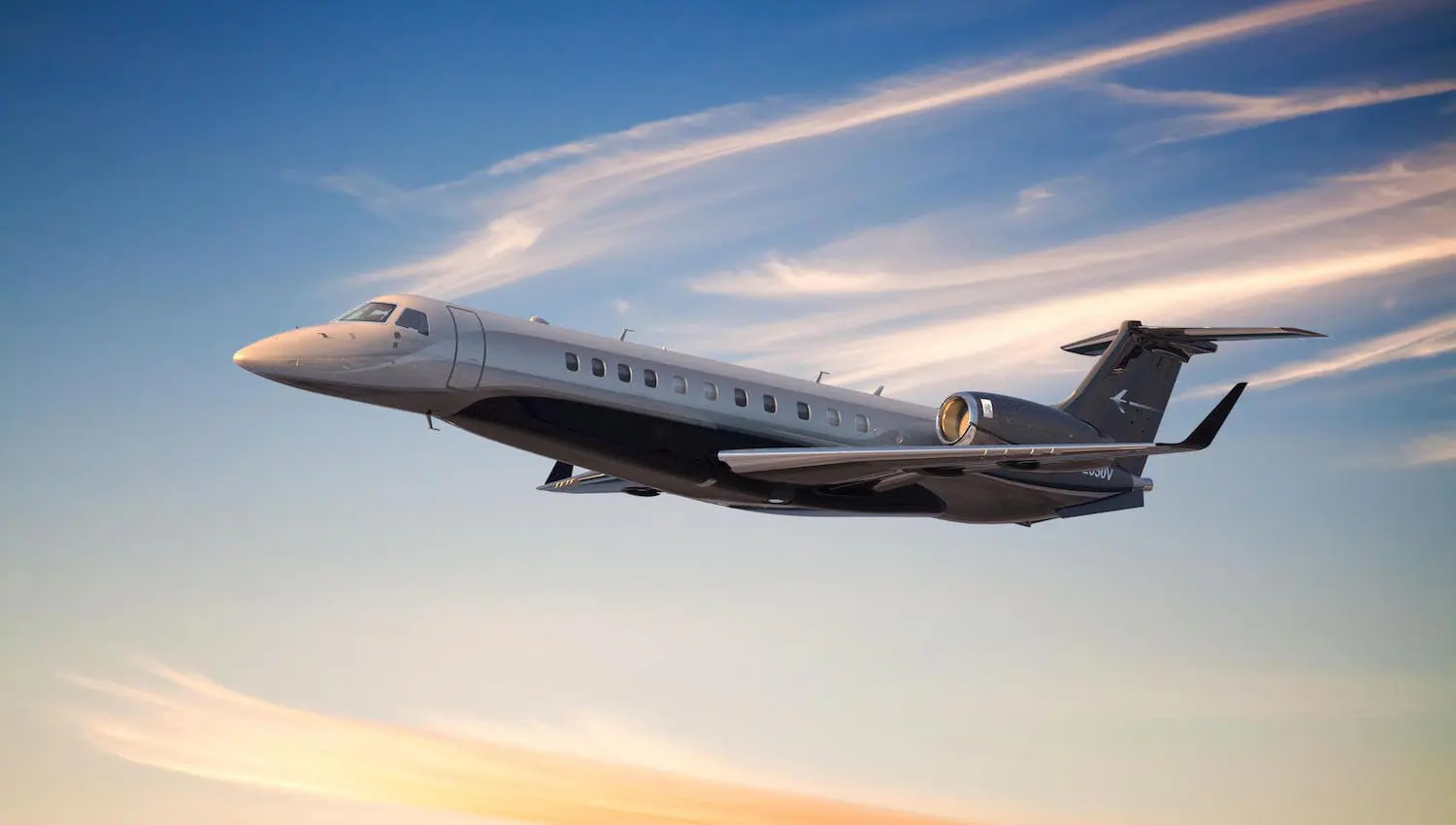
Embraer Legacy 650 (E)
Discover the Legacy 650E super medium jet.
Sustainable Aviation Fuels – short SAFs – are sustainable fuels that significantly reduce the climate impact of aviation.
They fall into two categories:
Several SAF production processes have already been certified. Power-to-liquid is considered a promising manufacturing process of synthetic SAFs.
In SAF production, CO2 is used as a raw material, which significantly improves the CO2 balance – by 80 percent or more, depending on the manufacturing process. SAFs can already be used in blends of up to 50 percent “drop-in” in the existing fleet, i.e. without adapting the infrastructure, the aircraft or the engine. In initial trials, SAFs have additionally shown great potential for reducing contrails and their climate impact: SAF is therefore the technology that leads directly to an improvement in climate impact in the existing fleet.
The basis of several SAF production processes is hydrogen. A complementary use of hydrogen and SAF in aviation is therefore possible. On long-haul routes, SAFs may have advantages over hydrogen, but on shorter routes, the fuel cell shows great potential: this concept is virtually emission-free.
 What is the demand for SAFs in aviation?
What is the demand for SAFs in aviation?To achieve climate-neutral aviation, Sustainable Aviation Fuels must be used across the board by 2050. The demand is approximately 600 million tons. In order for the demand to be met, the provision of large amounts of renewable energy and CO2 is critical for synthetic SAFs. Current biogenic manufacturing processes must initially meet demand, then advanced biogenic as well as synthetic processes with high sustainability must follow. A mix of biogenic and synthetic manufacturing processes maximizes the available volume.
Synthetic fuels are not yet produced on an industrial scale today; demo plants are currently being planned. Smaller volumes of biofuels are already being used today, representing approximately 0.1 percent of global kerosene consumption, which was 300 million metric tons in .
Learn more about SAF on the website of the International Civil Aviation Organisation (Link) and on First Jets Sustainability.